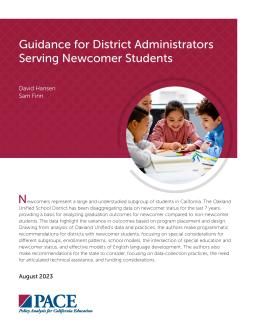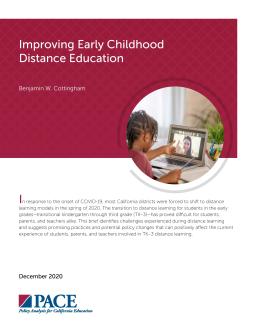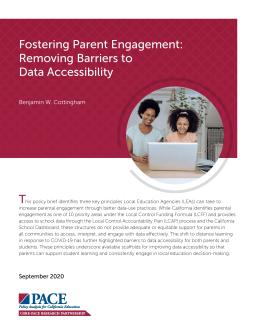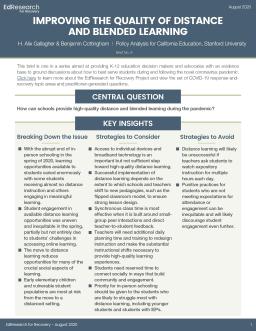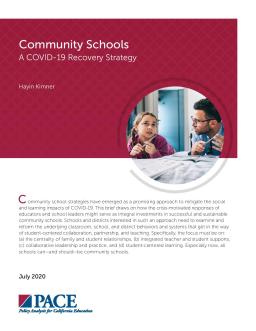Summary
Summary
The COVID-19 pandemic has affected all students; however, its impact has been particularly devastating for students of color, students from low-income families, English learners, and other marginalized children and youth. As transmission rates decline and vaccination rates increase in California, many are eager to return to normalcy, but we must all recognize that even the prepandemic normal was not working for all students. The 2021–22 school year, therefore, constitutes a critical opportunity for schools to offer students, families, and educators a restorative restart.
Summary
This brief was developed by California-based family and student engagement organizations, associations representing educators and system leaders, research institutes, and civil rights and equity groups. The recommendations arise from the evidence that has collectively emerged from focus groups with educators, parents, and students; polls and surveys of stakeholders; a deep review of the literature; and original research conducted on COVID-19’s impact on schools and students.
Summary
Summary
Summary
Summary
Parental engagement is essential to improve academic outcomes for all students, particularly low-income, Black, and Latinx students. Distance learning has intensified the need for parental support, but state policies and tools for engagement are inadequate. Local Educational Agencies can remove barriers to data access and support parent engagement by following three key principles and taking related actions.
Summary
Summary
The brief argues that community school strategies can help address the social and learning impacts of COVID-19, by reforming underlying classroom, school, and district behaviors and systems that prevent student-centered collaboration, partnership, and teaching. The focus should be on student-centered learning, integrated teacher and student supports, collaborative leadership and practice, and the centrality of family and student relationships. The brief encourages all schools to adopt a community school approach, which can serve as a sustainable and successful investment.
Summary
This article provides 10 recommendations based on the PACE report to help educators and district leaders provide high-quality instruction through distance and blended learning models in the 2020-21 school year. Despite the challenges of COVID-19, research can guide decisions about student learning and engagement. These recommendations can be used as a framework to prioritize quality instruction.
Summary
Summary
Governor Newsom’s first Budget Proposal increases funding for education in California. There are areas of substantive overlap in the Budget Proposal and research findings from the Getting Down to Facts II (GDTFII) research project, released in September 2018, which built an evidence base on the current status of California education and implications for paths forward. As the Budget moves from proposal to reality, it is critical that the evidence from GDTFII continues to inform the policy process.
